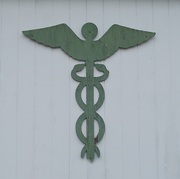
Turns out, being poor is not only less fun than being rich, it’s also bad for your health. According to an article in today’s Globe and Mail, poor Canadians are more likely to develop diabetes, more likely to suffer a heart attack, and more likely to die of cancer within five years of diagnosis. And being healthier, the rich tend to live longer. Life expectancy at age 25 for men in the highest income group is 7.1 years longer than for men in the lowest income group. Hardly seems fair, does it?
One response would be to take from the rich and give to the poor, thereby making the poor both wealthier and healthier. If the rich have earned their wealth honestly, though, this seems unjust. To the extent that they have gotten rich through deception or political privilege, on the other hand, it seems less morally problematic to confiscate some of the spoils of their crimes. If only it were a simple matter to tell what percentage of a person’s wealth was acquired honourably.
But independent of the morality of forcibly redistributing wealth, there are serious practical concerns to consider. By reducing the rewards of production and saving, coercive taxation discourages wealth creation, with the likely result that the poor will be made better off today but poorer in the long run. The machinery of government is not frictionless, either; a dollar paid in taxes will shrink considerably before it makes its way into the pockets of the poor. And a government with broad powers to tax and spend and regulate will inevitably use those powers to help its cronies maintain their unearned privileges.
So by all means, let’s help the poor become wealthier. But let’s do it by shrinking government, gutting crony capitalism, and releasing the forces of wealth creation.
But independent of the morality of forcibly redistributing wealth, there are serious practical concerns to consider. By reducing the rewards of production and saving, coercive taxation discourages wealth creation, with the likely result that the poor will be made better off today but poorer in the long run. The machinery of government is not frictionless, either; a dollar paid in taxes will shrink considerably before it makes its way into the pockets of the poor. And a government with broad powers to tax and spend and regulate will inevitably use those powers to help its cronies maintain their unearned privileges.
So by all means, let’s help the poor become wealthier. But let’s do it by shrinking government, gutting crony capitalism, and releasing the forces of wealth creation.